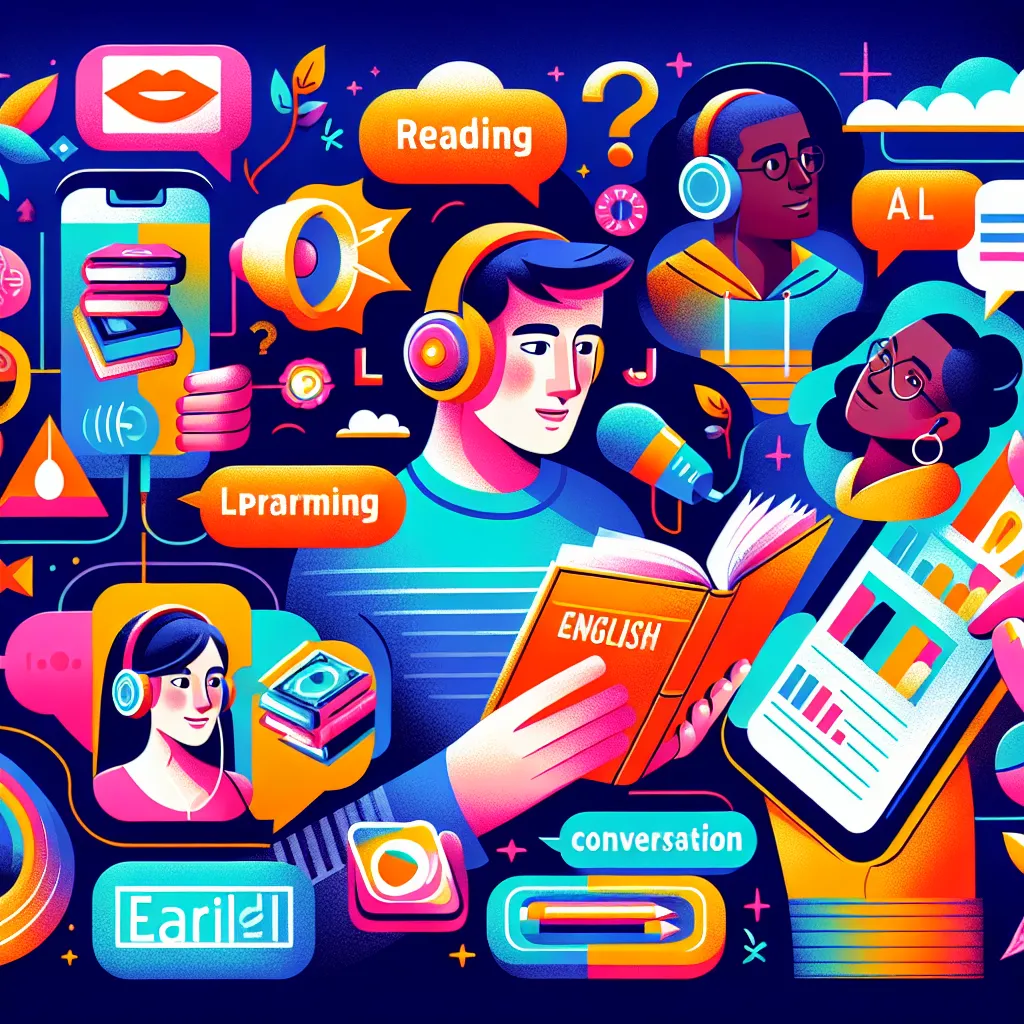Are you looking to improve your English skills quickly and effectively? Whether you’re a beginner or an advanced learner, mastering the art of Learning English Efficiently can significantly accelerate your progress. In this comprehensive guide, we’ll explore proven strategies, practical tips, and valuable resources to help you achieve your English language goals.
Understanding the Importance of Efficient English Learning
Learning English efficiently is crucial in today’s globalized world. It opens doors to better career opportunities, enhances communication skills, and broadens cultural understanding. But what exactly does it mean to learn English efficiently?
Efficient English learning involves maximizing your progress while minimizing time and effort. It’s about using smart strategies and targeted approaches to accelerate your language acquisition. By learning efficiently, you can:
- Achieve fluency faster
- Retain information more effectively
- Develop balanced skills in reading, writing, speaking, and listening
- Adapt to real-world English usage more quickly
 Efficient English Learning Strategies
Efficient English Learning Strategies
Key Strategies for Efficient English Learning
1. Immerse Yourself in the Language
One of the most effective ways to learn English efficiently is through immersion. Surround yourself with English as much as possible:
- Watch English movies and TV shows with subtitles
- Listen to English podcasts and music
- Read English books, newspapers, and online articles
- Change your phone and social media settings to English
By immersing yourself in the language, you’ll naturally pick up vocabulary, idioms, and sentence structures in context.
2. Practice Consistently
Consistency is key when it comes to efficient language learning. Set aside dedicated time each day for English practice, even if it’s just 15-30 minutes. Regular, focused practice is more effective than sporadic, lengthy sessions.
Create a study schedule that works for you and stick to it. Use tools like language learning apps or online courses to maintain a consistent learning routine.
3. Focus on High-Frequency Words and Phrases
When building your vocabulary, prioritize high-frequency words and phrases. These are the most commonly used words in English and will give you the biggest return on your learning investment.
Start with the 1000 most common English words and gradually expand your vocabulary from there. Use flashcards or spaced repetition software to reinforce your learning.
4. Utilize Diverse Learning Resources
Diversify your learning resources to keep your studies engaging and cover all aspects of language learning:
- Language learning apps (e.g., Duolingo, Babbel)
- Online courses and MOOCs
- English grammar books and workbooks
- Language exchange websites and apps
- YouTube channels dedicated to English learning
By using a variety of resources, you’ll expose yourself to different teaching styles and perspectives, enhancing your overall understanding of the language.
 Diverse English Learning Resources
Diverse English Learning Resources
5. Practice Active Listening and Speaking
To improve your listening and speaking skills efficiently:
- Engage in conversations with native speakers or language exchange partners
- Repeat phrases and sentences you hear in movies or podcasts to improve pronunciation
- Record yourself speaking English and analyze your pronunciation and fluency
- Participate in English language meetups or conversation groups
Remember, the more you actively use the language, the faster you’ll improve.
6. Use Mnemonics and Association Techniques
Mnemonics and association techniques can help you remember vocabulary and grammar rules more easily:
- Create mental images or stories to associate with new words
- Use acronyms to remember grammar rules
- Connect new English words with similar-sounding words in your native language
These techniques make learning more engaging and help information stick in your long-term memory.
7. Set SMART Goals
Setting Specific, Measurable, Achievable, Relevant, and Time-bound (SMART) goals can significantly boost your learning efficiency. For example:
- “I will learn 20 new vocabulary words each week for the next three months.”
- “I will watch one English movie without subtitles every weekend for the next six weeks.”
- “I will have a 15-minute conversation in English with a native speaker twice a week for the next two months.”
By setting clear, achievable goals, you’ll stay motivated and track your progress more effectively.
Common Pitfalls to Avoid
While striving for efficient English learning, be aware of these common mistakes:
- Focusing too much on grammar: While grammar is important, don’t let it overshadow communication practice.
- Neglecting pronunciation: Pay attention to proper pronunciation from the beginning to avoid developing bad habits.
- Translating word-for-word: Try to think in English rather than translating from your native language.
- Being afraid of making mistakes: Embrace errors as learning opportunities.
- Studying passively: Engage actively with the language through speaking and writing exercises.
Next Steps: Putting Your Learning into Practice
Now that you’re equipped with efficient learning strategies, it’s time to put them into action:
- Create a personalized study plan incorporating the techniques mentioned above.
- Start a language learning journal to track your progress and reflect on your learning experience.
- Find a language exchange partner or join an English conversation group to practice regularly.
- Set a specific goal to take an English proficiency test (e.g., IELTS, TOEFL) within the next 6-12 months to measure your progress.
Remember, efficient English learning is a journey, not a destination. Stay consistent, stay motivated, and enjoy the process of improving your language skills.
By implementing these strategies and avoiding common pitfalls, you’ll be well on your way to mastering English efficiently. Keep challenging yourself, stay curious, and embrace every opportunity to use and improve your English skills. With dedication and smart learning techniques, you’ll achieve your language goals faster than you ever thought possible.




